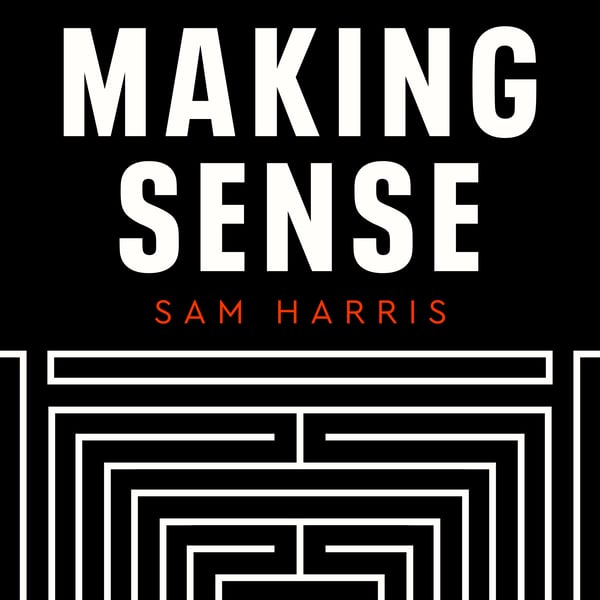#380 — The Roots of Attention
Making Sense with Sam Harris
Waking Up with Sam Harris
4.6 • 29.1K Ratings
🗓️ 23 August 2024
⏱️ 45 minutes
🧾️ Download transcript
Summary
Sam Harris speaks with Amishi Jha about attention and the brain. They discuss how attention is studied, the failure of brain-training games, the relationship between attention and awareness, mindfulness as an intrinsic mental capacity, the neurological implications of different types of meditation, the neural correlates of attention and distraction, the prospects of self-transcendence, the link between thought and emotion, the difference between dualistic and nondualistic mindfulness, studying nondual awareness in the lab, the influence of smartphones, the value of mind wandering, and other topics.
If the Making Sense podcast logo in your player is BLACK, you can SUBSCRIBE to gain access to all full-length episodes at samharris.org/subscribe.
Learning how to train your mind is the single greatest investment you can make in life. That’s why Sam Harris created the Waking Up app. From rational mindfulness practice to lessons on some of life’s most important topics, join Sam as he demystifies the practice of meditation and explores the theory behind it.
Transcript
Click on a timestamp to play from that location
| 0:00.0 | Welcome to the Making Sense Podcast, this is Sam Harris. Just a note to say that if you're hearing this you're not currently on our subscriber feed and will only be hearing the first part of this conversation. |
| 0:18.0 | In order to access full episodes of the Making Sense Podcast, you'll need to subscribe at Sam Harris.org. There you'll also find our |
| 0:24.9 | scholarship program where we offer free accounts to anyone who can't afford one. We |
| 0:29.0 | don't run ads on the podcast and therefore it's made possible entirely through the support of our subscribers. |
| 0:34.0 | So if you enjoy what we're doing here, please consider becoming one. Today I'm speaking with Amishie Jaa. |
| 0:47.0 | Amishie is a professor of psychology at the University of Miami, |
| 0:51.0 | and she serves as the Director of Contemplative Neuroscience for the Mindfulness Research |
| 0:55.3 | and Practice Initiative, which she co-founded in 2010. |
| 0:59.9 | She received her PhD from the University of California Davis and did postdoctoral |
| 1:04.4 | training at the Brain Imaging and Analysis Center at Duke University. |
| 1:08.3 | Amishie's work has been featured at NATO and the World Economic Forum and the Pentagon. |
| 1:15.4 | She's been covered in the New York Times, NPR, Time magazine, Forbes, |
| 1:20.3 | etc. |
| 1:21.6 | And her TED Talk titled How to Tame Your Wandering Mind, has been viewed over 5 million times. |
| 1:28.0 | And she's the author of the book, Peak Mind. |
| 1:31.0 | We focus mostly on attention and the brain. We discuss how attention is studied, the failure of brain training games, the relationship between attention and awareness, mindfulness is an intrinsic mental capacity, |
| 1:45.0 | the neurological implications of different types of training in meditation, |
| 1:49.0 | the neural correlates of attention and distraction, |
| 1:52.0 | the prospects of self-transcendence, the link |
| 1:55.6 | between thought and emotion, the difference between dualistic and non-dualistic mindfulness, |
| 2:01.7 | how we might study non-dual awareness in the lab, the influence of |
| 2:05.4 | smartphones, the value of mind wandering, and other topics. And now I bring you |
... |
Transcript will be available on the free plan in -215 days. Upgrade to see the full transcript now.
Disclaimer: The podcast and artwork embedded on this page are from Waking Up with Sam Harris, and are the property of its owner and not affiliated with or endorsed by Tapesearch.
Generated transcripts are the property of Waking Up with Sam Harris and are distributed freely under the Fair Use doctrine. Transcripts generated by Tapesearch are not guaranteed to be accurate.
Copyright © Tapesearch 2025.

